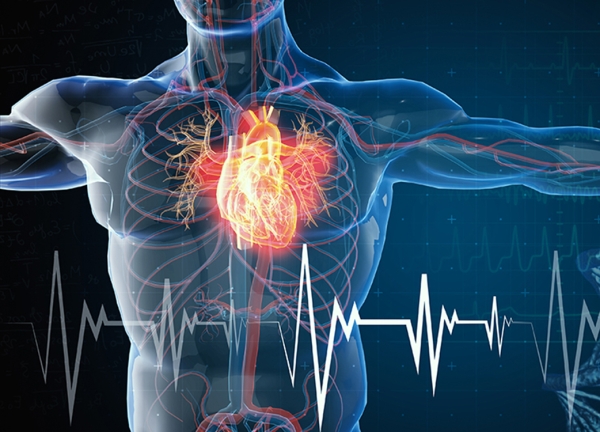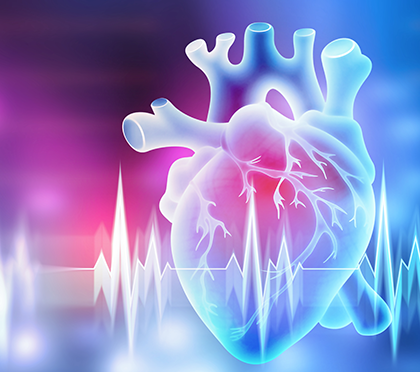Meal planning the heart-smart way: Cardiology Jupiter’s food rules
Meal planning the heart-smart way: Cardiology Jupiter’s food rules
Blog Article
Recognizing the Importance of Cardiology in Modern Healthcare Providers
Cardiology plays a critical duty in modern healthcare, particularly as heart problem proceeds to be the leading source of mortality worldwide. Breakthroughs in diagnostics and treatment have actually changed client care, allowing earlier interventions and enhanced results. The change towards preventive cardiology empowers individuals to manage their wellness proactively. As innovation continues to advance, the integration of innovative options might even more redefine cardiology's influence on public wellness, triggering a more detailed exam of arising trends and their implications.
The Frequency of Heart Problem and Its Effect On Public Health
Heart condition stays the leading cause of fatality internationally, its influence prolongs much past private people to impact public wellness systems and economies. The high occurrence of cardiovascular disease puts a significant stress on medical care resources, demanding enhanced financing for treatment, prevention, and recovery programs. Public health efforts should resolve risk aspects such as excessive weight, cigarette smoking, and less active lifestyles, which contribute considerably to the climbing incidence of heart conditions.Moreover, the financial concern related to heart condition is immense, including not just direct medical expenses yet also indirect expenses associated with shed performance and early death. Communities deal with difficulties in taking care of these prices, typically causing differences in medical care accessibility and outcomes. As the population ages and lifestyle-related dangers remain to intensify, the seriousness for reliable cardiology treatments comes to be extremely important. Consequently, dealing with heart illness is not just a matter of private health and wellness however likewise a critical public health and wellness concern.
Breakthroughs in Heart Diagnostics and Imaging Techniques
Current developments in cardiac diagnostics and imaging techniques have revolutionized the area of cardiology, boosting the capability to detect and check cardiovascular disease. Methods such as cardiac MRI, CT angiography, and echocardiography have actually ended up being progressively sophisticated, giving in-depth photos of heart frameworks and functions. These modalities permit the early identification of problems like coronary artery disease, cardiac arrest, and valvular disorders.Moreover, improvements in non-invasive diagnostics, such as wearable innovation and remote surveillance gadgets, have encouraged patients and healthcare providers. These devices help with real-time monitoring of heart rhythms and other vital indicators, causing timely treatments. In addition, synthetic knowledge is being integrated right into imaging analysis, enhancing precision and effectiveness in medical diagnosis.
Developments in Therapy Alternatives for Heart Conditions
Recent advancements in cardiology have brought about considerable technologies in treatment choices for heart problems. These include sophisticated medical techniques that improve step-by-step outcomes and emerging medicines that offer new opportunities for treatment. As the field develops, these advancements play a vital function in enhancing person care and results.
Advanced Surgical Techniques
Advancements in medical techniques have transformed the landscape of cardiology, using brand-new hope for patients with heart conditions. Minimally intrusive treatments, such as catheter-based treatments, have actually greatly reduced recovery times and hospital stays. Techniques like robotic-assisted surgery improve precision, enabling surgeons to browse intricate anatomical structures with greater accuracy. Developments in imaging technology facilitate real-time visualization throughout treatments, enhancing outcomes. Transcatheter aortic shutoff replacement (TAVR) exhibits an innovation in dealing with aortic constriction, allowing valve replacement without open-heart surgical treatment. Additionally, hybrid approaches that combine medical and catheter-based techniques offer tailored solutions for various cardiac concerns. These innovative surgical techniques not just improve client safety but additionally broaden treatment options, emphasizing the essential function of development in modern cardiology techniques.
Emerging Medications and Treatments
As the landscape of cardiology remains to evolve, arising treatments and medications play a pivotal function in enhancing therapy options for heart disease. Advancements such as novel anticoagulants and progressed lipid-lowering agents have actually changed the monitoring of heart diseases, substantially decreasing patient morbidity and mortality. Additionally, the development of genetics therapies and regenerative medicine uses appealing opportunities for treating conditions formerly deemed irreparable. Clinical trials are constantly exposing the efficiency of these therapies, pushing the limits of typical therapies. The assimilation of electronic health technologies helps with customized medication, permitting for customized therapy plans based on hereditary and way of life variables. Collectively, these developments underscore the vibrant nature of cardiology, improving individual results and redefining standards of care in modern healthcare.
The Role of Preventive Cardiology in Person Treatment
Precautionary cardiology plays an essential role in client care by focusing on the identification of danger elements that add to cardiovascular disease. With way of life alteration techniques and very early discovery techniques, healthcare companies can effectively decrease the incidence of cardiovascular occasions - Cardiology Jupiter. This proactive method not only boosts person end results however likewise promotes long-term wellness
Threat Aspect Identification
While cardiovascular conditions continue to be a leading cause of morbidity and mortality worldwide, reliable threat aspect identification serves as a cornerstone of preventative cardiology. Determining danger elements such as hypertension, hyperlipidemia, diabetes mellitus, and family members history is essential for very early treatment. Healthcare specialists use various evaluating techniques to evaluate these variables, permitting tailored safety nets. In addition, comprehending a client's way of living options, such as smoking and physical lack of exercise, even more educates risk analyses. This complete evaluation allows medical professionals to develop personalized treatment plans intended at mitigating risks. By prioritizing threat factor identification, medical care systems can enhance individual outcomes and decrease the general burden of heart diseases, inevitably adding to enhanced public wellness techniques and resource appropriation.
Lifestyle Adjustment Approaches
A wide range of researches highlights the critical role of way of life alteration strategies in minimizing cardio condition risk. These techniques go right here include nutritional adjustments, raised exercise, cigarette smoking cessation, and weight administration. By embracing a heart-healthy diet plan abundant in fruits, veggies, entire grains, and lean healthy proteins, people can reduce cholesterol levels and blood pressure. Routine exercise enhances the heart and enhances general cardiovascular health and wellness. Furthermore, stopping cigarette smoking considerably minimizes the danger of cardiovascular disease and improves recovery rates for those with present problems. Weight management better adds to cardio wellness by mitigating various other risk aspects such as diabetes mellitus and hypertension. Applying these lifestyle alters not just advertises individual wellness yet also offers as a foundation of preventative cardiology in patient care.
Early Detection Techniques
Way of living adjustments substantially add to reducing cardio illness dangers, however they are most effective when coupled with very early discovery methods. Preventative cardiology stresses the relevance of determining prospective heart concerns before they escalate right into severe conditions. Methods such as blood pressure tracking, cholesterol testing, and advanced imaging modern technologies like echocardiograms play essential roles in examining cardiovascular click site wellness. Biomarkers and genetic screening also improve the accuracy of early discovery, enabling customized preventative methods. Normal cardiac danger evaluations equip healthcare carriers to intervene proactively, potentially protecting against cardiac arrest and strokes (Cardiology Jupiter). By incorporating these early discovery approaches into routine treatment, people can benefit from timely way of life treatments and targeted treatments, ultimately enhancing and enhancing results top quality of life
Integrating Modern Technology Into Cardiology Practices
As improvements in modern technology proceed to reshape various fields, the combination of cutting-edge devices and systems right into cardiology techniques has actually become important for improving individual treatment and end results. Telemedicine systems allow cardiologists to check patients remotely, improving access to care while reducing the burden on healthcare facilities. Wearable devices, such as smartwatches, allow constant heart rate monitoring, notifying both individuals and medical professionals to possible concerns in real-time. In addition, fabricated intelligence (AI) is being utilized to analyze vast amounts of cardiac information, aiding in very early medical diagnosis and tailored therapy strategies. Advanced imaging techniques, including 3D echocardiography, enhance visualization of heart structures, resulting in much more exact treatments. Digital wellness records (EHRs) streamline individual info monitoring, ensuring that cardiologists have prompt accessibility to critical information. Together, these technological advancements are transforming cardiology, promoting proactive administration and improved wellness results for clients with cardio problems.
The Importance of Person Education and Involvement
Patient education and learning and engagement play a critical duty in the management of cardio health. By furnishing patients with understanding concerning their conditions, treatment choices, and way of living modifications, doctor equip people to take an energetic function in their treatment. This aggressive strategy can lead to enhanced adherence to suggested drugs, dietary changes, and workout programs, inevitably reducing the risk of complications.Engagement likewise promotes a solid patient-provider partnership, encouraging open communication and see this site count on. When individuals really feel educated and entailed, they are extra likely to voice concerns and ask questions, which can result in much better scientific end results. In addition, instructional sources, such as workshops or electronic systems, can boost understanding and advertise self-management methods. On the whole, prioritizing person education and learning and involvement is essential for enhancing cardiovascular health, boosting lifestyle, and lowering medical care prices related to heart diseases.
Future Patterns in Cardiology and Their Potential Impact

Regularly Asked Inquiries
What Way Of Life Modifications Can Minimize Cardiovascular Disease Threat?
The present question addresses lifestyle adjustments that can substantially reduce cardiovascular disease danger. Cardiology care. Taking on a balanced diet plan, participating in normal exercise, keeping a healthy weight, handling anxiety, and staying clear of tobacco can notably boost cardiovascular wellness
Just How Can I Identify Early Indications of Heart Issues?
Acknowledging very early indicators of heart issues entails tracking symptoms such as breast pain, shortness of breath, tiredness, and uneven heartbeat. Timely understanding of these indications can prompt essential medical evaluation and intervention for far better outcomes.
What Are the Distinctions In Between Cardiologists and Cardiac Surgeons?
The distinctions in between cardiologists and cardiac doctors hinge on their functions; cardiologists primarily manage and identify heart disease through non-invasive techniques, while heart doctors carry out operations to correct structural heart concerns. Each plays a vital, distinct function.

Exactly how Often Should I Get My Heart Health Checked?
The regularity of heart checkup varies based on private risk elements. Usually, adults ought to go through evaluations every one to two years, while those with status quo might call for more frequent analyses as encouraged by health care professionals.
What Duty Does Genetics Play in Cardiovascular Disease Threat?
Genetics greatly affects cardiovascular disease threat, with familial patterns showing inherited problems. Particular genetics can predispose people to hypertension, cholesterol problems, and other cardiovascular troubles, highlighting the value of hereditary screening in reviewing heart health and wellness. Heart condition stays the leading reason of death internationally, its impact expands far beyond specific patients to impact public health systems and economic climates. Public wellness initiatives have to address danger variables such as weight problems, smoking cigarettes, and sedentary way of lives, which add greatly to the increasing occurrence of heart conditions.Moreover, the economic concern connected with heart condition is immense, including not just straight clinical costs but likewise indirect expenditures related to lost efficiency and early death. Preventative cardiology plays a vital duty in person care by focusing on the identification of danger variables that add to heart condition. Artificial intelligence (AI) and device learning are enhancing diagnostics and client tracking, making it possible for very early detection of heart illness. The distinctions in between cardiologists and heart surgeons lie in their roles; cardiologists primarily handle and identify heart conditions with non-invasive techniques, while cardiac cosmetic surgeons carry out surgical procedures to correct structural heart concerns.
Report this page